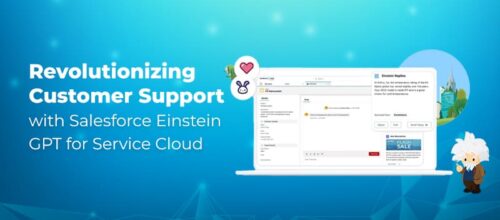Supercharge Your Marketing Campaigns: Integrating Twilio with Salesforce Marketing Cloud

Written by Poonam Chandersy
Technical Content Writer
August 11, 2023
In today’s digital world, businesses must stay competitive by using the latest technology to engage with their customers. One such technology is Salesforce Marketing Cloud, a powerful platform that allows businesses to create and manage their marketing campaigns across multiple channels, including email, social media, and SMS.
By integrating Salesforce Marketing Cloud with Twilio, businesses can unlock more capabilities, such as sending personalized SMS messages to customers at scale. In this blog, we will explore the benefits of integrating Salesforce Marketing Cloud with Twilio, the cost of using each platform per SMS and how to use a custom activity in node.js to integrate the two platforms.
Benefits of Integrating Salesforce Marketing Cloud with Twilio
Salesforce Marketing Cloud and Twilio are both powerful platforms that can help businesses reach their customers across multiple channels. By integrating these platforms, businesses can take advantage of the unique capabilities of each platform to create highly effective marketing campaigns. Some of the benefits of integrating Salesforce Marketing Cloud with Twilio include:
- Personalization: With Salesforce Marketing Cloud, businesses can create personalized marketing campaigns that are tailored to individual customers. By integrating Twilio, businesses can extend this personalization to SMS messages, which can help improve engagement and conversion rates.
- Scale: Twilio is a powerful messaging platform that can send SMS messages at scale. By integrating Twilio with Salesforce Marketing Cloud, businesses can take advantage of this scale to send SMS messages to large groups of customers.
- Automation: Salesforce Marketing Cloud offers powerful automation capabilities, allowing businesses to create complex marketing campaigns that run automatically. By integrating Twilio, businesses can extend this automation to SMS messages, making it easy to send messages at the right time and with the right content.
A Cost Comparison
Below is a cost comparison of sending a SMS from Salesforce Marketing Cloud as compared to Twilio:

| Salesforce Marketing Cloud | Twilio |
|---|---|
| The cost varies depending on your subscription level and the volume of messages you send. According to Salesforce, the price ranges from $0.015 to $0.04 per message. | The cost varies depending on the volume of messages you send and the country they are being sent to. In USA, Twilio charges $0.0075 per SMS to send and receive messages. International SMS messages can cost more depending on the country and carrier. |
It’s worth noting that both Salesforce Marketing Cloud and Twilio offer volume-based pricing, which means that the cost per SMS message will decrease as you send more messages.
The Process of Integrating Salesforce Marketing Cloud with Twilio
To integrate Twilio on Salesforce Marketing Cloud, a custom activity in node.js needs to be created. A custom activity is a piece of code that can be used to extend the capabilities of Salesforce Marketing Cloud. In this case, we’ll use a custom activity to send SMS messages using Twilio.
Below are the high-level steps involved in creating a custom activity in node.js:
- Create a new Custom Activity in Salesforce Marketing Cloud: To create a custom activity, you will need to log in to Salesforce Marketing Cloud and navigate to the Journey Builder section. From there, you can create a new custom activity and define its properties.
- Set up your Twilio Account: Before you send SMS messages using Twilio, you will need to set up a Twilio account. This involves creating a Twilio account, purchasing a phone number, and configuring the account to send SMS messages.
- Write the Node.js Code: Once the Salesforce Marketing Cloud and Twilio accounts have been set up, you can write the code for your custom activity. This code will use the Twilio API to send SMS messages.
- Deploy the Custom Activity: After you have written the code for your custom activity, you will need to deploy it to Salesforce Marketing Cloud. This involves creating a package that contains the code and uploading it onto Salesforce Marketing Cloud.
- Test your Custom Activity: Once your custom activity is deployed, you can test it by creating a journey in Salesforce Marketing Cloud that uses the custom activity to send SMS messages.
In conclusion, integrating Twilio with Salesforce Marketing Cloud provides businesses with numerous benefits and expanded capabilities for their marketing campaigns. By leveraging the power of personalization, businesses can create tailored SMS messages that enhance customer engagement and improve conversion rates.
Additionally, the scalability of Twilio allows businesses to reach large groups of customers efficiently, while the automation capabilities of Salesforce Marketing Cloud ensure that messages are sent at the right time with relevant content.
Discover how Royal Cyber’s certified Salesforce experts can assist you with integrating Twilio with Salesforce Marketing Cloud for your business, so you can unlock the full potential of these platforms to deliver personalized, scalable, and automated SMS marketing campaigns that drive results.



